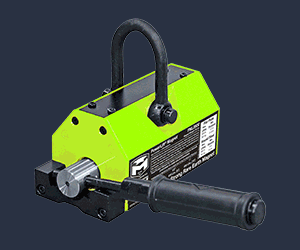Tariffs on Imports Increase Business for U.S. Aluminum Extruders
Domestic aluminum extruders have increased their business by 10-15 percent since Department of Commerce orders took effect.
Posted: December 3, 2014
Ducker Worldwide (Troy, MI), an independent consulting and research firm, recently concluded a study on behalf of the Aluminum Extruders Council (AEC; Wauconda, IL) focused on identifying the benefits from and future risks to the U.S. aluminum extrusion market’s trade case against the People’s Republic of China.
This revealing report indicates that up to 20 percent of the U.S. extrusion market has returned to domestic producers. Furthermore, the study lays out three scenarios based on the resolve of and future success in the domestic industry’s defense of the Department of Commerce’s trade orders.
“It was clear through trade data analysis and interviews with extruders, customers and suppliers that the AEC’s actions to date in the U.S. industry’s trade case against Chinese extruders have dramatically reduced imported extrusions from China and returned demand to domestic suppliers. Chinese imports grew at their peak to over 20 percent of domestic demand in late 2009/early 2010, but fell rapidly to less than one percent after the orders took effect in October 2010,” said Nick Limb, the managing principal of Ducker.
Abey Abraham, the project director at Ducker, also noted, “With the exception of a small number of niche extruders, a majority of domestic suppliers experienced a 10 percent to 20 percent growth attributable to the return of customers that previously purchased from Chinese extruders.”
The AEC has led the U.S. aluminum extrusion industry in achieving level competition by winning tariff protection that offsets unfair trade practices of extruders/importers of aluminum profiles produced in China. Conservatively, AEC estimates upwards of 600 million lb of extrusions are being produced in the U. S. that would have otherwise been lost to China.
The study also assesses the future impact on the industry should the orders be eliminated or the tariff rates fall. “What I found most telling is that the risk exposure is heavily weighted to building and construction applications and includes a clear risk to the transportation market including automotive applications.” said Jeff Henderson, the director of operations at the AEC. “For the first time ever, we have insight into which markets are most vulnerable in the event tariffs were to decline or be eliminated. “
The study also examined how the Chinese extrusion market has responded to the duties and what potential steps they intend to take in the future. Abraham elaborates, “The Chinese extrusion industry has not sat back. It is clear they have launched a number of countermeasures in an attempt to regain their lost position. Most notably, the Chinese market is investing in large press capacity, engineering resource, and downstream capabilities.”
Henderson adds, “This is exactly what extruders have seen in the U.S. as Chinese competitors are pushing scope requests attempting to add value to extrusions and claiming they are now offering a finished product. Additionally, Chinese extruders have tinkered with alloying components to claim a 5000-series extrusion is exempt from the tariffs in an effort to try and evade duties. If a U.S. extruder believes they are not vulnerable to Chinese competitors because they haven’t lost business in the past, they should reconsider their strategy and current market share. It is clear that Chinese extruders are focused on identifying avenues to penetrate the U.S. market and gain market share. A major take away from customer interviews conducted is the right price and product will win business in the future.”
The AEC and Ducker Worldwide will co-host a webinar for AEC members on December 17 that will review the study and its findings. “The industry has come a long way in just a few years to gain back business it had lost to unfair trade,” said Henderson. “This report confirms what the AEC Fair Trade Committee suspected: the tariffs continue to ensure a level playing field for all. The U.S. aluminum extrusion industry is resilient given a level playing field in which to work, and I’m convinced that the tariffs have significantly contributed to the economic growth we are now seeing.”
AEC members may register for the free webinar “The AEC and Ducker Worldwide Present: The U.S. Aluminum Extrusion Trade Case, A Look Forward,” by visiting AECmeets.org.









